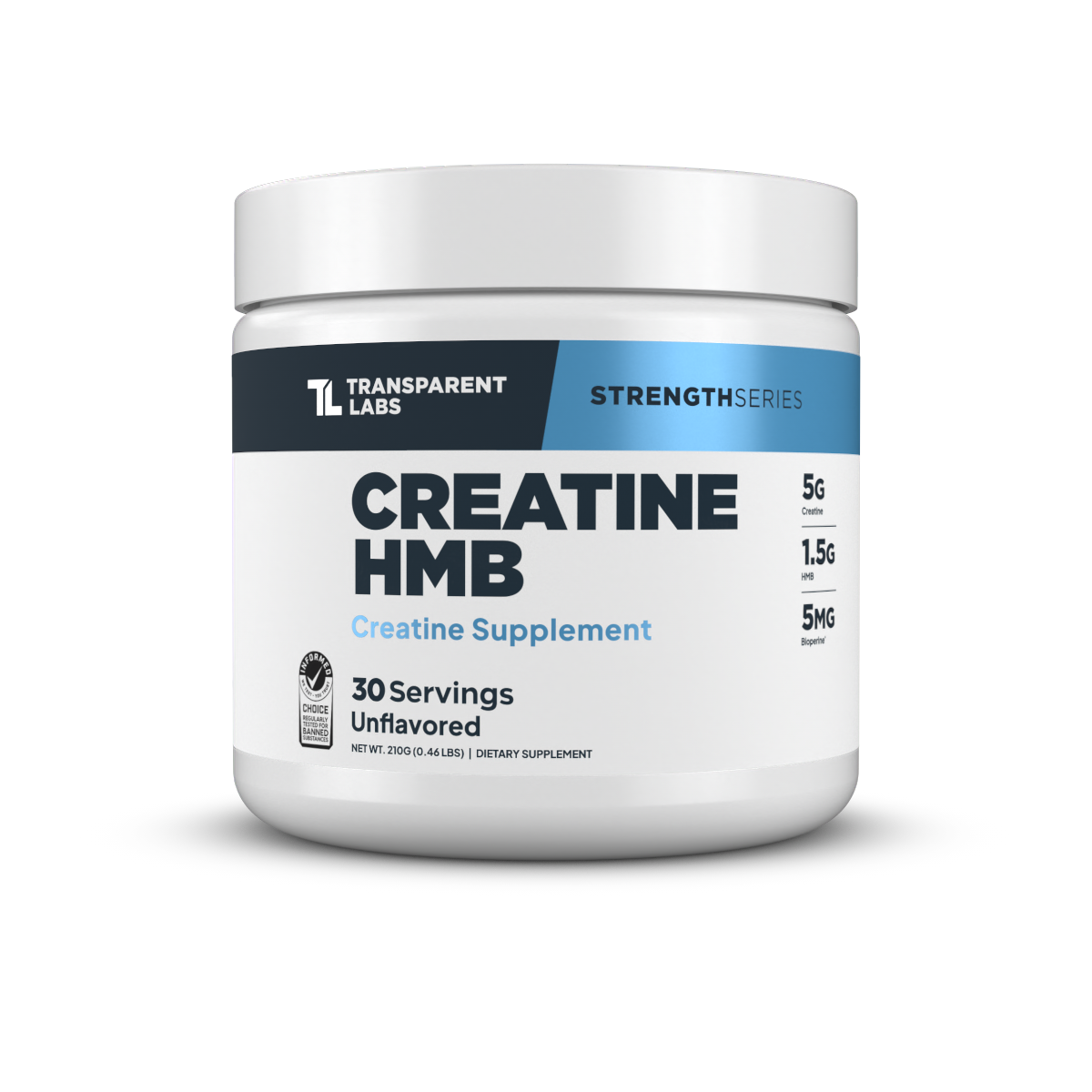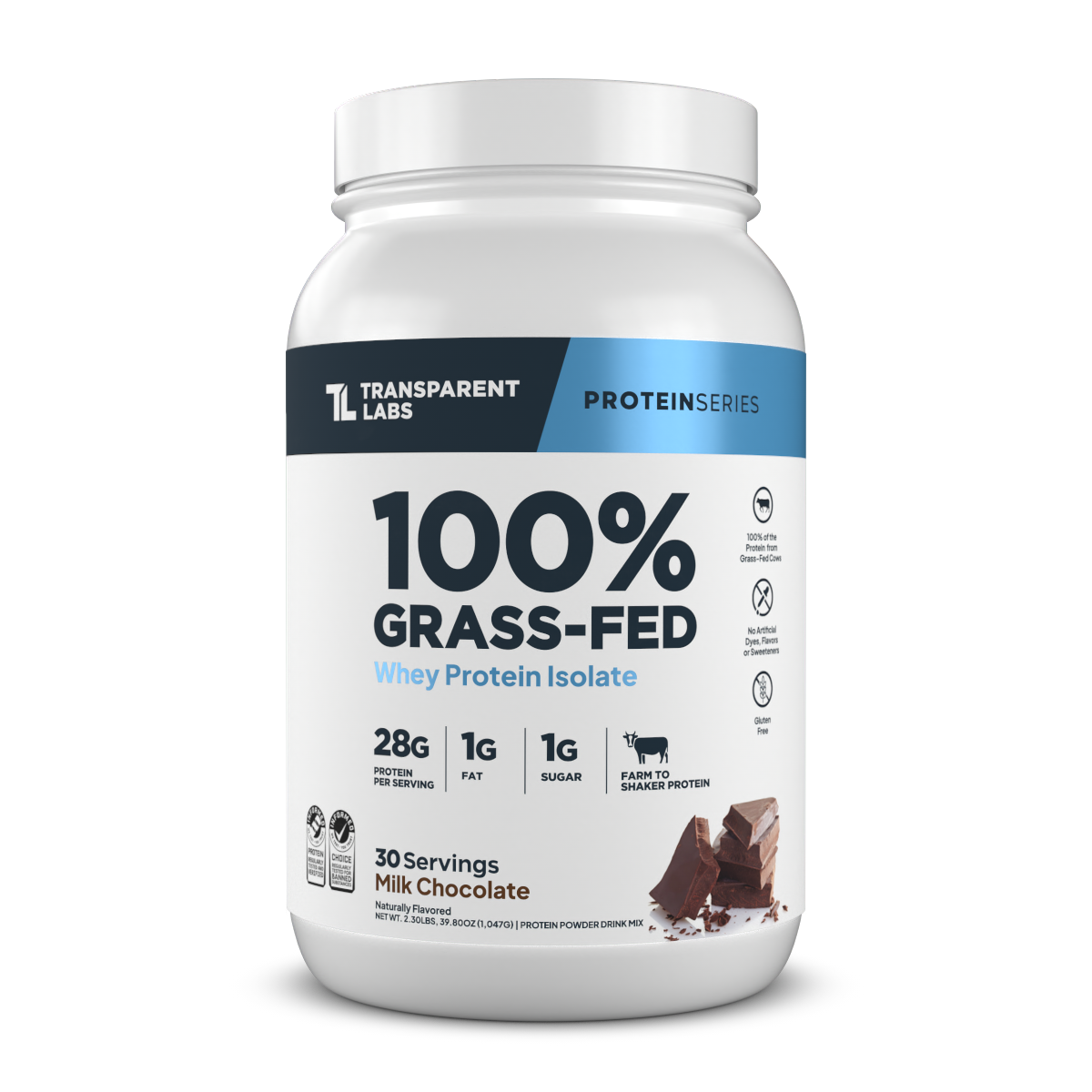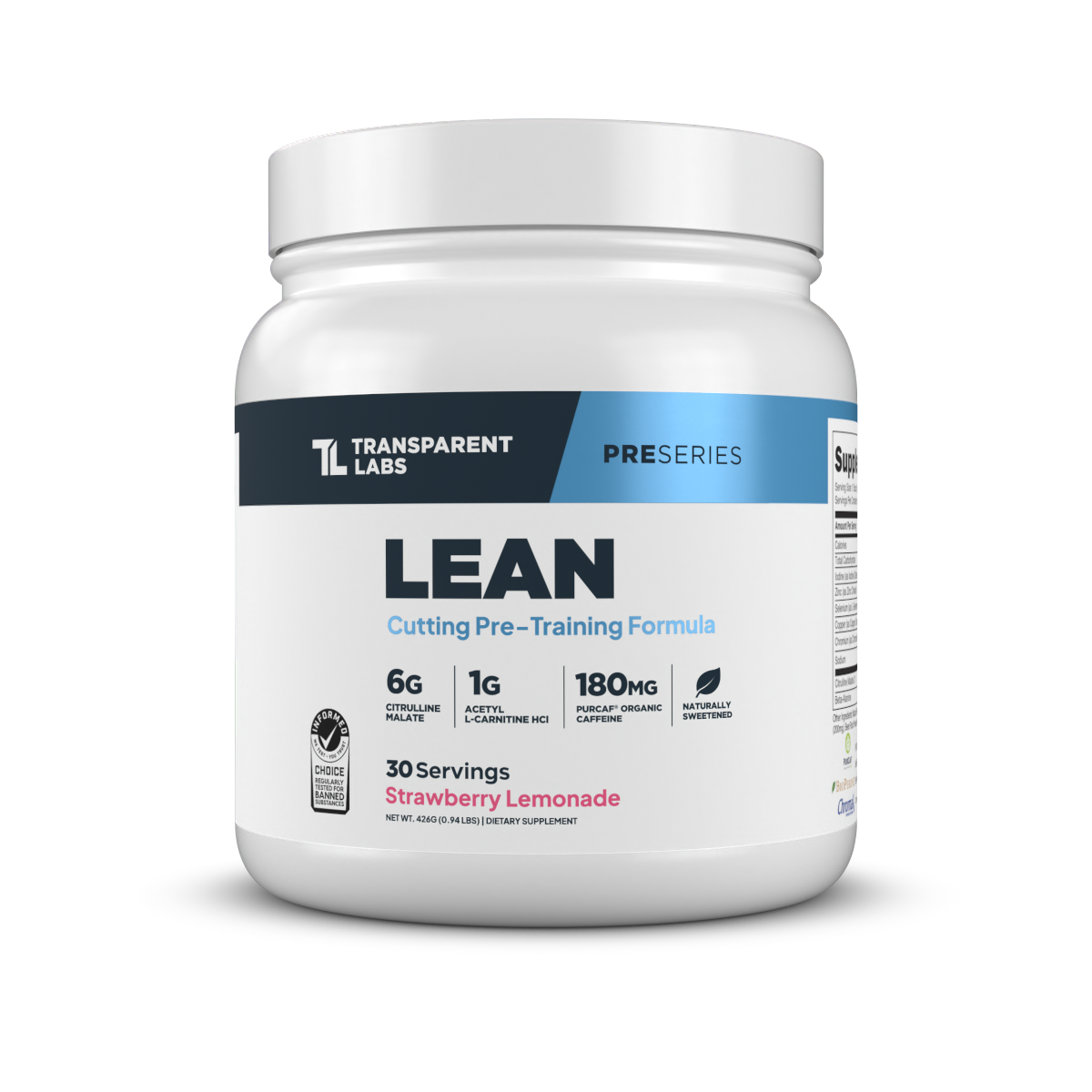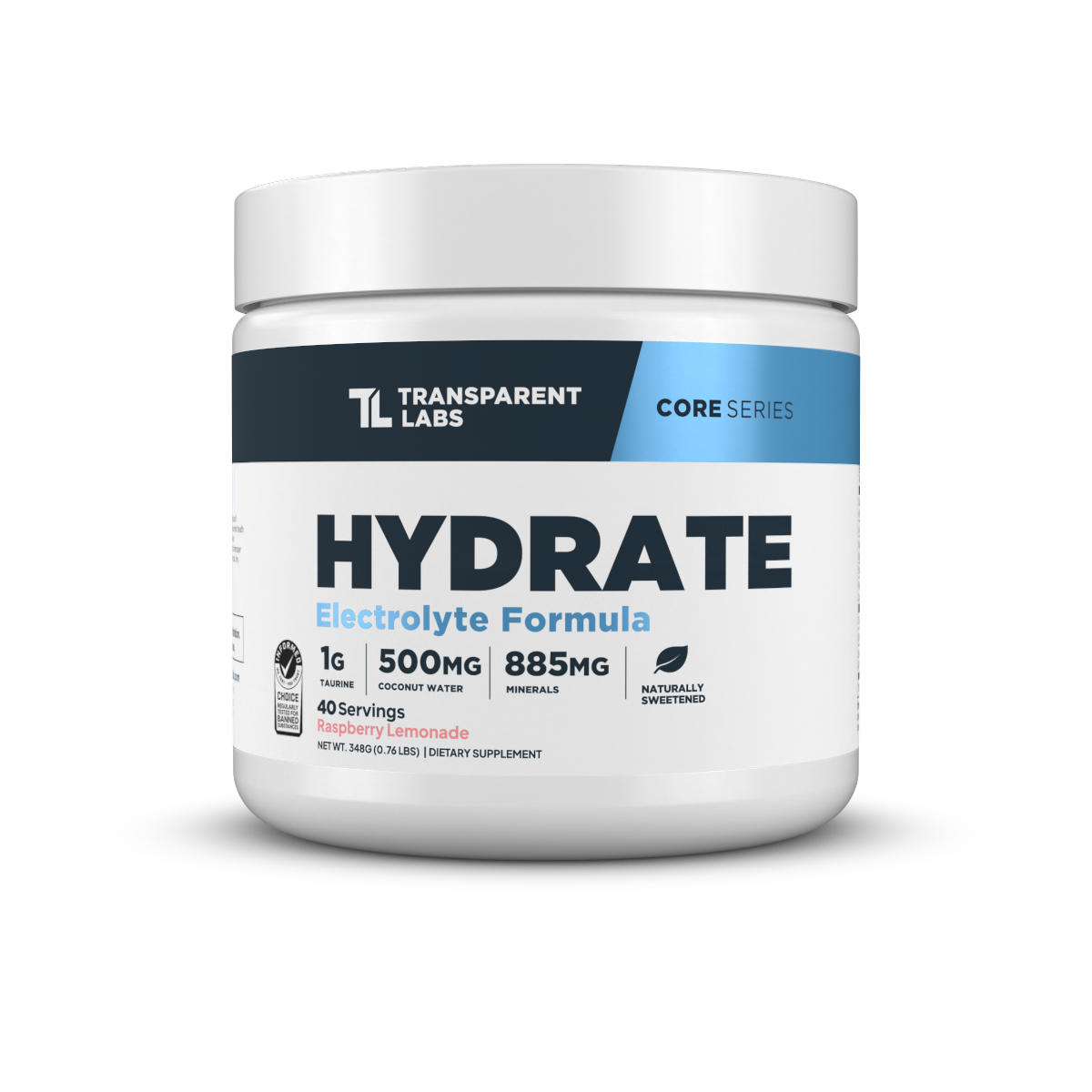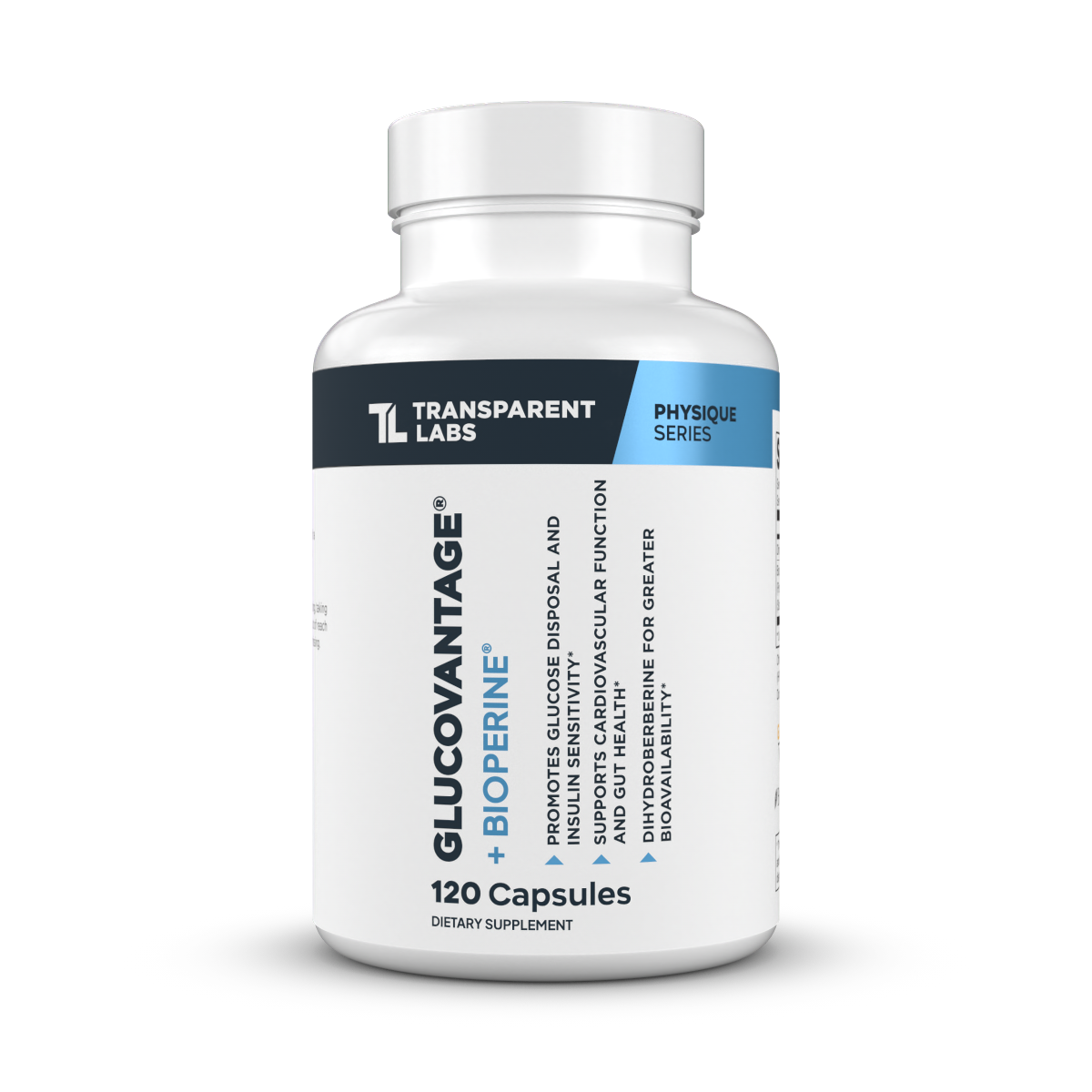
GlucoVantage® + Bioperine®
Serving Size:
Third-Party Testing
We believe trust is earned through transparency. That’s why we provide full access to our third-party test results, so you can feel confident in what you’re taking. View all third-party tests.
Glucovantage® + Bioperine® ushers in a new era of metabolic health, featuring an innovative combination of Dihydroberberine and Bioperine for enhancing nutrient absorption and blood sugar control. Berberine has been used in traditional medicine for centuries, with potential health benefits ranging from improved blood sugar regulation, insulin sensitivity, immune function, and body weight management.
This formula features the more bioavailable form of berberine, known as dihydroberberine, plus Bioperine® black pepper extract for superior absorption and fewer gastrointestinal side effects than traditional berberine supplements.
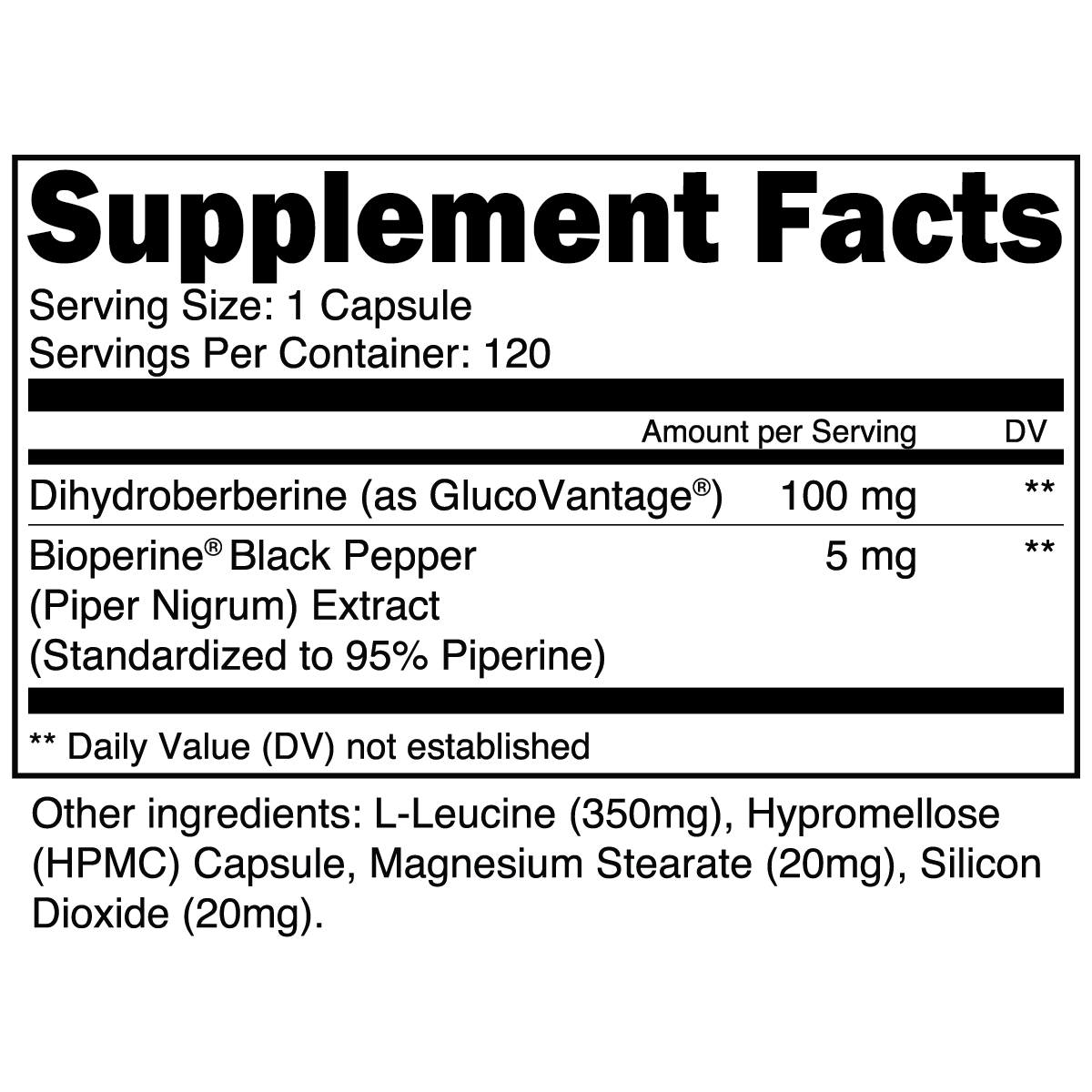
Orders in the US over $99 ship free.
Once your order has shipped out from our fulfillment center, you will receive a Shipping Confirmation email. If you selected a tracked shipping method, you will receive your tracking information, along with the necessary steps to track your order, within this email. Please note, orders are generally fulfilled same day or next business day.
Click here for the full shipping and delivery guide »
45 Day Satisfaction Guarantee
If you are not satisfied with your product, we will offer you a full refund or store credit for the value of the item within 45 days of delivery.
Click here for the full refund policy »




